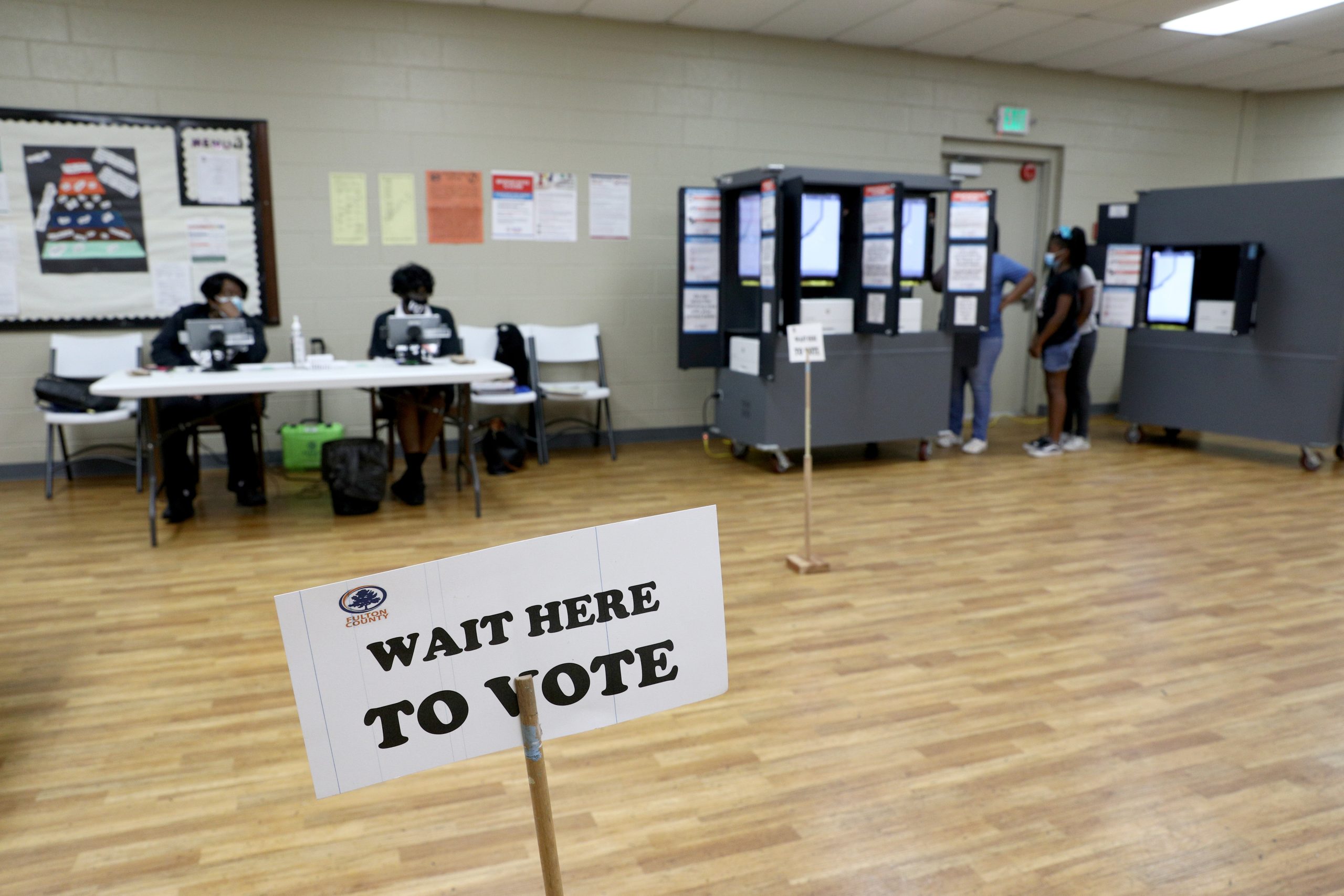
Ian Patrick, FISM News
[elfsight_social_share_buttons id=”1″]
The state of Georgia began early voting on Monday, and reports suggest that the first day has already shattered midterm voting records in the state.
According to Georgia Secretary of State Brad Raffensperger, early in-person voting for the first day ended at 131,318. He said this “is up from 70,849 on the first day of early voting in the 2018 midterm election, marking an 85% increase, and nears the day one early voting turnout in the 2020 presidential election.”
The 2020 presidential election saw 136,739 in-person votes on the same day, meaning this year’s turnout was a little over 5,000 voters shy of breaking that record.
In addition to the over 131,000 in-person early voters, Raffensperger said the state also counted 11,759 absentee ballots.
A breakdown of the data shows that the earliest votes from both Monday and Tuesday have come from Fulton County, which was notably the center of a criminal investigation focusing on election interference following the 2020 election.
Early voter turnout was similar in Georgia’s primary elections back in May of this year. At that time, Raffensperger’s office said the state’s new election integrity law “brought out more than 850,000 to cast a ballot in person or return an absentee ballot.”
“The incredible turnout we have seen demonstrates once and for all that Georgia’s Election Integrity Act struck a good balance between the guardrails of access and security,” Raffensperger commented.
The Election Integrity Act was voted in by Georgian officials shortly after the chaos of the 2020 Presidential Election. According to an FISM News report, the bill does the following:
Most of the bill defines and organizes various aspects of the election process, allowing for transparency in appointing officials and verifying electors. Hot topics from the bill include absentee ballots, identification requirements, and the ability to provide refreshments to voters in line. Absentee ballots received most of the changes, primarily dealing with timelines for when a person could apply for a ballot, who is eligible, and what identification is needed to certify an absentee voter.
Many on the political left see the laws as suppressive, even racist. President Biden took heat in April of last year when he explicitly said the laws were akin to “new Jim Crow laws.”
Stacey Abrams, the Democrat candidate for the office of governor in Georgia, has also previously complained about this set of laws. Speaking about the record turnout concerning the primaries, Abrams said at the time “that increased turnout has nothing to do with suppression.”
Abrams has caught flak for her comments about voter suppression in Georgia as well as for her constant remarks that the 2018 election for governor was “stolen” from her. She was forced to comment on these allegations during Monday’s debate, in which she explicitly said that current Governor Brian Kemp had won at the time despite years of saying she had won.
Key midterm matchups in Georgia include incumbent Raphael Warnock (D) and Herschel Walker (R) running for U.S. Senate, Bee Nguyen (D) and incumbent Brad Raffensperger (R) running for Georgia’s Secretary of State, and Stacey Abrams (D) running against incumbent Brian Kemp (R) for the state governor position.
